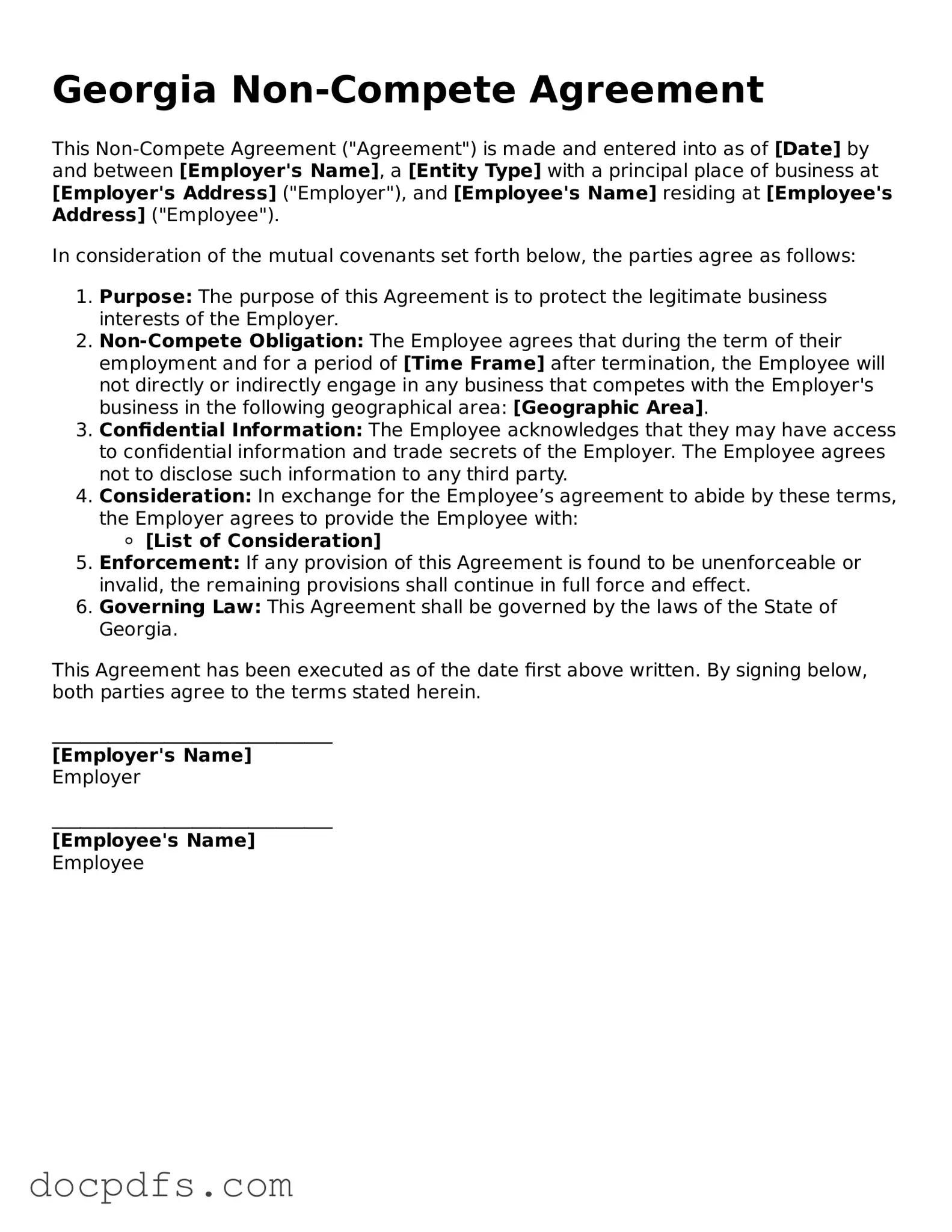What is a Georgia Non-compete Agreement?
A Georgia Non-compete Agreement is a legal document that restricts an employee from engaging in certain activities that may compete with their employer after leaving the company. This agreement helps protect the employer’s business interests, trade secrets, and customer relationships.
Are non-compete agreements enforceable in Georgia?
Yes, non-compete agreements are enforceable in Georgia, but they must meet specific criteria. The agreement must be reasonable in scope, duration, and geographic area. Courts will review these factors to determine enforceability.
What makes a non-compete agreement valid in Georgia?
For a non-compete agreement to be valid in Georgia, it should:
-
Be in writing and signed by both parties.
-
Protect legitimate business interests.
-
Contain reasonable restrictions on time and geographic area.
-
Not impose undue hardship on the employee.
How long can a non-compete agreement last in Georgia?
The duration of a non-compete agreement in Georgia should be reasonable. Typically, agreements lasting one to two years are more likely to be enforced, depending on the nature of the business and the employee’s role.
What is considered a reasonable geographic area for a non-compete?
A reasonable geographic area is one that aligns with the employer’s market and business operations. For example, if a business operates statewide, a statewide restriction may be justified. However, overly broad geographic restrictions may be challenged in court.
Can an employee negotiate a non-compete agreement?
Yes, employees can negotiate the terms of a non-compete agreement before signing. It’s essential to discuss any concerns or desired changes with the employer. This can lead to a more balanced agreement that protects both parties.
What happens if a non-compete agreement is violated?
If an employee violates a non-compete agreement, the employer may seek legal action. This could result in an injunction to prevent the employee from competing or monetary damages for losses incurred due to the violation.
Can a non-compete agreement be terminated?
Yes, a non-compete agreement can be terminated if both parties agree in writing. Additionally, if the employer no longer has a legitimate business interest to protect, they may choose to release the employee from the agreement.
What should I do if I have questions about a non-compete agreement?
If you have questions about a non-compete agreement, consider consulting with a legal professional who specializes in employment law. They can provide guidance tailored to your specific situation and help you understand your rights and obligations.

